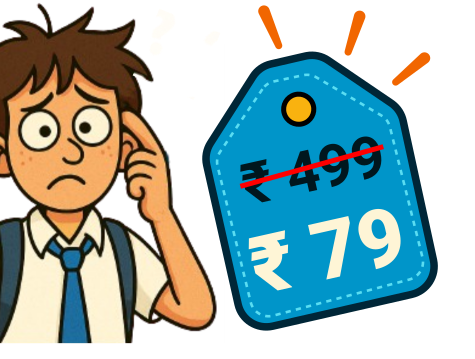MBA and M.Tech are the best options for students after B.Tech. Choosing the right path after B.Tech requires a lot of attention. Check pros and cons for MBA after B.Tech and M.Tech after B.Tech here.

One of the most common questions among final-year B.Tech/ B.E students is which course to choose after B.Tech . Students are often confused while choosing the apt course after B.Tech. There is equal preference for MBA and M.Tech after B.Tech. Both MBA and M Tech course have their own pros and cons. The career score and employment scenario for MBA and M.Tech is not the same. Choosing the right path depends on the mindset of students. For example, some students prefer to take up a job after B.Tech instead of pursuing higher studies. Students design their career by considering several aspects, and the requirements of each student are different from the other.
Choosing between M.Tech and MBA may be quite confusing for students. In order to mitigate the confusion, it is advisable to understand what opportunities both MBA or M.Tech course offer. Both courses will tune your career, and one must choose the right path as per his/ her capabilities, aim, and requirements.
In this article, CollegeDekho has tried to give clarity on the right course to choose after B.Tech. As both courses have its own advantages and limitations, students are advised to make the right decision by considering some of the factors mentioned below.
MBA vs M Tech – Trend in India
For most engineering students, life revolves around numbers and comparative deductions. Therefore, let us go through some statistics about Indian engineering graduates’ preference for MBA and M.Tech.
Recently, the Times of India conducted a survey in India wherein it went through the CVs of Indian CEOs to figure out and understand the educational paths taken by them. The survey revealed that 45% of CEOs in India completed their graduation in engineering. Among the CEOs who did their graduation in engineering, 78% pursued post-graduation, out of which 64% of CEOs opted for an MBA degree. These CEOs have completed MBA from top B-Schools across the globe such as Stanford, Harvard, IIM, XLRI etc.
The survey also revealed that 83% of CEOs who own a family-run company pursued MBA from top B-Schools, and most of these CEOs completed their UG in engineering.
After referring to the above statistics, you may think why a large chunk of people opted for MBA after B.Tech. Therefore, students need to understand the career path that MBA offers after B.Tech.
As far as M.Tech is concerned, students choose M.Tech after B.Tech to pursue a career in teaching and research. M.Tech offers good scope for research, and students get a chance to contribute to society. At the same time, M.Tech graduates can fit in professor roles in universities and colleges across the country after attaining necessary higher qualifications. Nevertheless, the major question is which career gives a long-term secured career – MBA or M.Tech.
Renowned industrialists and professors at top engineering institutes were of the opinion that choosing MBA after B.Tech is a mere deviation from the engineering path. Even though MBA is the most popular, the country needs more M.Tech graduates. Technical industries across the globe prefer M.Tech graduates, and one can expect a lucrative career with M.Tech.
Pros and Cons of Pursuing M.Tech after B.Tech
M.Tech is the best career path for final-year B.Tech students who are aiming to enhance their knowledge in the subject. M.Tech is a specialisation course through which B.Tech graduates can hone their technical skills. The market needs experts in the subject, and there is grand respect for the subject experts in India. M.Tech gives in-depth technical knowledge that MBA does not offer.
Even though managerial positions in various companies are alluring, there is equal importance for the chief technical officer who plays a vital role in taking technical decisions of a company. The post has less competition, and an M.Tech student with good technical knowledge has more demand in the job market.
Another major advantage of pursuing M.Tech is greater scope for pursuing a doctoral degree (Ph.D). A Ph.D. degree in engineering will land you in top-notch positions in universities and colleges across the globe. Ph.D. graduates in engineering have good scope to hold research positions in various organisations, and the pay scale offered to such positions is lucrative. At the same time, Ph.D. holders have great respect in the society.
A Ph.D. degree after M.Tech helps you to take up professor jobs in universities across the globe. The annual salary offered to professors in India ranges from Rs. 12 lakh – 15 lakh per annum. Despite a high pay scale, the job of a professor is free from pressure and stress. There are no targets, and one can lead a peaceful life.
Top engineering colleges in India such as IITs offer a stipend to M.Tech graduates under certain eligibility conditions. There is no stipend facility for MBA course in India.
As far as cons concerned, the limiting career scope for the M.Tech is the major reason for the higher MBA preference after B.Tech. Today, the job market needs wider knowledge over technical expertise. In order to excel in a competitive world and corporate field, one must understand varied aspects of business management such as marketing, finance, human resource management etc. An M.tech course does not offer knowledge in these aspects, which is a barrier for career advancement in the corporate world.
Even for most government jobs in the engineering sector , B.Tech is considered as the qualification for different roles. If the B.Tech graduates have a strong GATE score, the chances of securing employment in PSUs through GATE is high. Students with an aim to secure a job in the government sector or PSUs do not prefer M.Tech. However, some PSUs that offer jobs without GATE score .
Another major disadvantage of M.Tech course is a tough curriculum. Students require a lot of hard work throughout the academics to secure a good percentile. Only a limited number of good colleges in India offer M.Tech course and securing admission in such colleges is very difficult. For example, IITs offer M.Tech admission through GATE , and securing admission needs the best score in GATE. On the other hand, IITs offer a limited number of seats, and there is huge competition for admission.
Pros and Cons of Pursuing MBA after B.Tech
MBA course trains the graduates to handle a broad spectrum of situations pertaining to business. Taking up MBA after B.Tech might be a positive move, as it provides a technical graduate with management knowledge. Jobs in the corporate world need both technical and management knowledge and MBA after B.Tech is the perfect combination for a successful career. MBA opens career opportunities in multiple sectors and the employment scope is high.
MBA inculcates teamwork strategies and leadership skills leading to career advancement. In other words, MBA not only enables higher employability rate but also gives more scope for career advancement. MBA graduates in India are paid lucrative salaries right from the beginning of their career.
If you have a family business, MBA is the right choice to enhance the scope of your family business. You can implement new strategies through your knowledge. Similarly, MBA is the right option for those planning to set up their own business. The course helps the students to understand the market conditions and strategies followed by competitors to attract the customers.
As far as the disadvantages concerned, the competition for MBA in India has increased in recent years, and the scope of employment has been decreasing. Only a limited percentage of MBA graduates are able to secure jobs in top firms with best salary packages. Top firms in India prefer only MBA graduates from premier or top B-Schools across the country.
On the other hand, MBA fees are higher than the M.Tech course in India. For instance, if a student secures MBA admission in top B-School, he/ she have to pay at least Rs. 4 lakh – Rs. 6 lakh per annum. Scholarships , stipend and loan facility is limited, and not all students may avail those benefits.
If an MBA graduate fails to secure a job with a good salary package, it will take years to cover the expenses incurred for studying MBA.
The quality of MBA education in India has become a major concern due to the prevalence of a higher number of colleges. There are numerous private MBA colleges in India where students are being exposed to theoretical learning than practical exposure. Every year, lakhs of students graduate MBA, and only a few of them are able to find jobs with a satisfactory salary package.
Securing admission in top B-Schools like IIMs is not easy, as the selection process involves different stages. Students must score the best percentile in CAT to secure admission in top IIMs.
M.Tech or MBA?
We have tried our best to discuss the individual pros and cons of MBA and M.Tech courses. We hope that the above explanation will help you to choose the best career option. After B.Tech, if you like to enhance knowledge and pursue research in the respective filed, M.Tech is the best option for you. If you are willing to widen your career scope, MBA is the best option.
Are you feeling lost and unsure about what career path to take after completing 12th standard?
Say goodbye to confusion and hello to a bright future!

Was this article helpful?




















Similar Articles
25+ CAT VARC Practice Questions with Solutions PDF Download
Topics You Should Not Skip in CAT Quant 2025
CAT 2025 Quant Topic-wise Weightage
CAT 2025 Arithmetic Questions with Answers
15+ CAT 2025 Percentage Questions: Formulas, Tips and Tricks
CAT 2025 Preparation Strategy for Repeaters